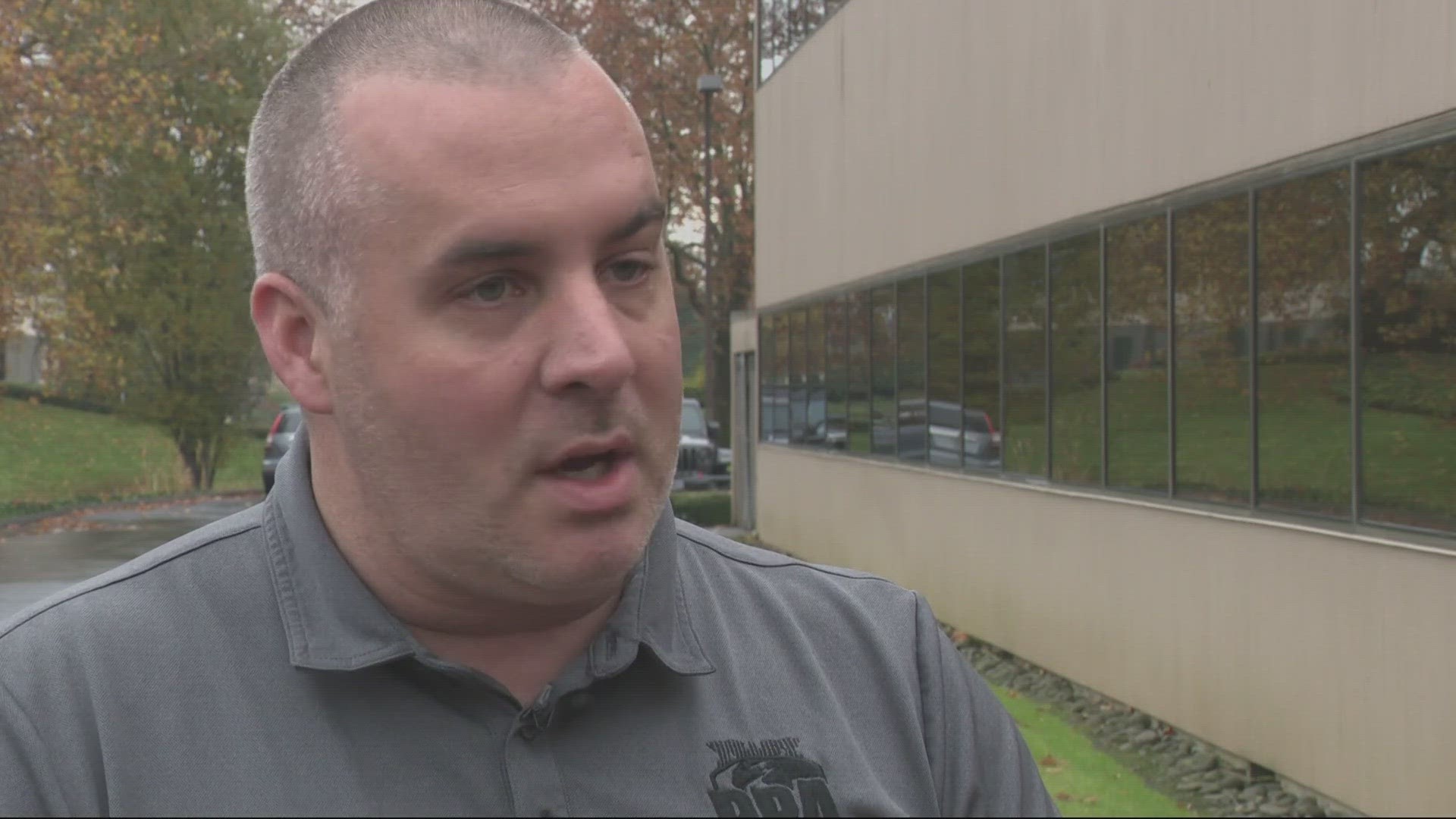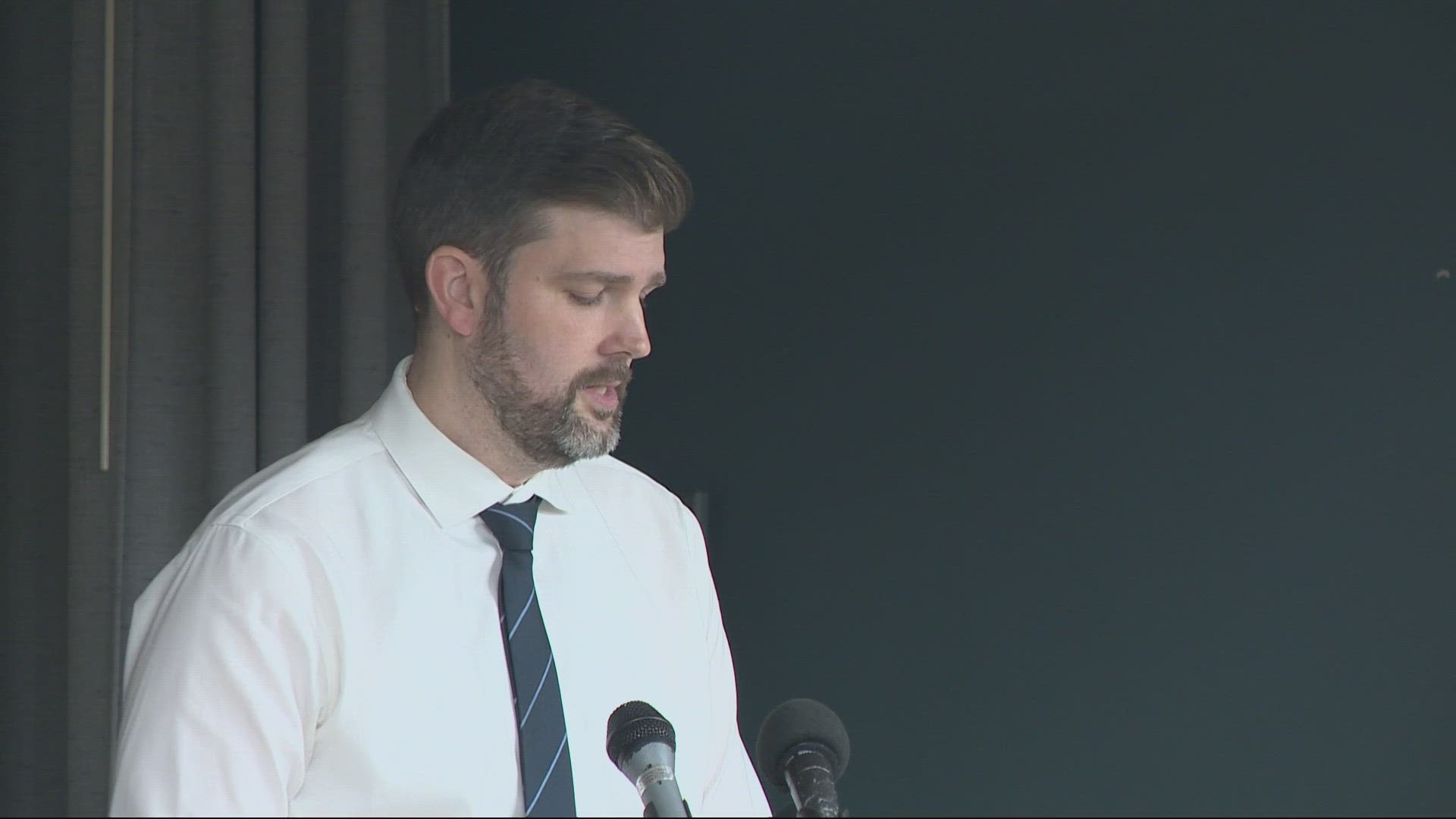PORTLAND, Ore. — In a letter obtained by KGW sent to Portland Mayor Ted Wheeler earlier this month, Multnomah County District Attorney Mike Schmidt outlined his concerns with Portland’s daytime ban on homeless camping.
The ban itself has been somewhat of a never-ending saga, leaving Portlanders confused over how it would be enforced, which was the crux of Schmidt's letter. If a homeless person violated the ban three times, they could face fines or jail time.
Though unable to talk with KGW on camera, Schmidt’s letter stated that the ban required Portland Police officers to give his office the following documentation when someone violated it:
- Police report(s) documenting the date, time, location, and nature of the camping violation on each of the three dates.
- Copies of the two prior written warnings required by PCC 14A.50.025(A).
- If police are issuing a citation on the grounds that the subject is not “involuntarily homeless,” in addition to the items listed above, we also need an identified witness, with contact information, who can establish that shelter or other options for housing were accessible to the subject on each date in question.
If any piece of this was not included, police would be asked to follow up, essentially redoing the case.
'IT'S SUPER STRESSFUL': Judge’s order blocking Portland’s enforcement of the daytime camping ban causes confusion on the streets
“If three different officers interact with that person, if each person doesn’t know what each person said, you could end up with a prosecutorial problem,” said Sgt. Aaron Schmautz, the Portland Police Association president.
“I hear the concern about how we document contacting people three times. How do we ensure that we have good evidence to prosecute cases Portlanders are looking for solutions?” he added.
Schmidt’s letter goes on to say the district attorney’s office is “not a service provider,” since the mayor asked them to come up with “alternative sentences,” such as connecting people with drug treatment or mental health services.
Schmidt explained that his office doesn’t have the budget for that “because this is a municipal ordinance, no treatment dollars are available within the state budget on which we typically rely to provide treatment to individuals charged with crimes, nor is any currently funded specialty court available for this purpose.”
Nathan Vasquez, a Multnomah County prosecutor who is running against Schmidt for Multnomah County DA, criticized Schmidt's perceived lack of response, saying in a statement, "Your district attorney has a responsibility to do more than throw their hands in the air. We must all do our part to collaborate on solutions."
He continued, "Enforcement of the city’s camping policy belongs in Community Court, an effective diversion program that once connected low-level offenders to individualized services. Sadly, that program was never restarted after pandemic closures. My administration will improve neighborhood safety by rebuilding the treatment and diversion courts that our community desperately needs. We will do more than send letters complaining about the challenges we face — we’ll rise to those challenges each and every day as a partner.”
Mayor Ted Wheeler’s office did not respond to KGW’s request for comment, though KGW's Blair Best showed the letter to commissioner Rene Gonzalez on Wednesday.
“It’s awfully late ... We could’ve gotten that a couple months ago, frankly. … I get the burden that’s on the [district attorney]; we’re all struggling with this, but that shouldn’t stop us. We should be continuing to push forward with how we connect the dots between criminal justice and behavioral health,” Gonzalez said.
In another last-minute hurdle, a Multnomah County judge blocked the ban from going into effect late last week, arguing its constitutionality given the lack of available shelter space in Portland.
“We did our best, and it’s profoundly disappointing that she stops us in our tracks with a one-page decision with zero explanation,” Gonzalez said of the ruling.
The city attorney’s office has asked the judge for a more detailed reason why.
“Right now, we’re floating in the wind because there’s zero guidance from the judge,” Gonzalez said.
The next step for the city is getting that detailed explanation from the judge from there the city could file an appeal or rework parts of the ordinance. Meanwhile, talks are ongoing between police and the city to make sure officers have the tools they need to enforce the ban.


